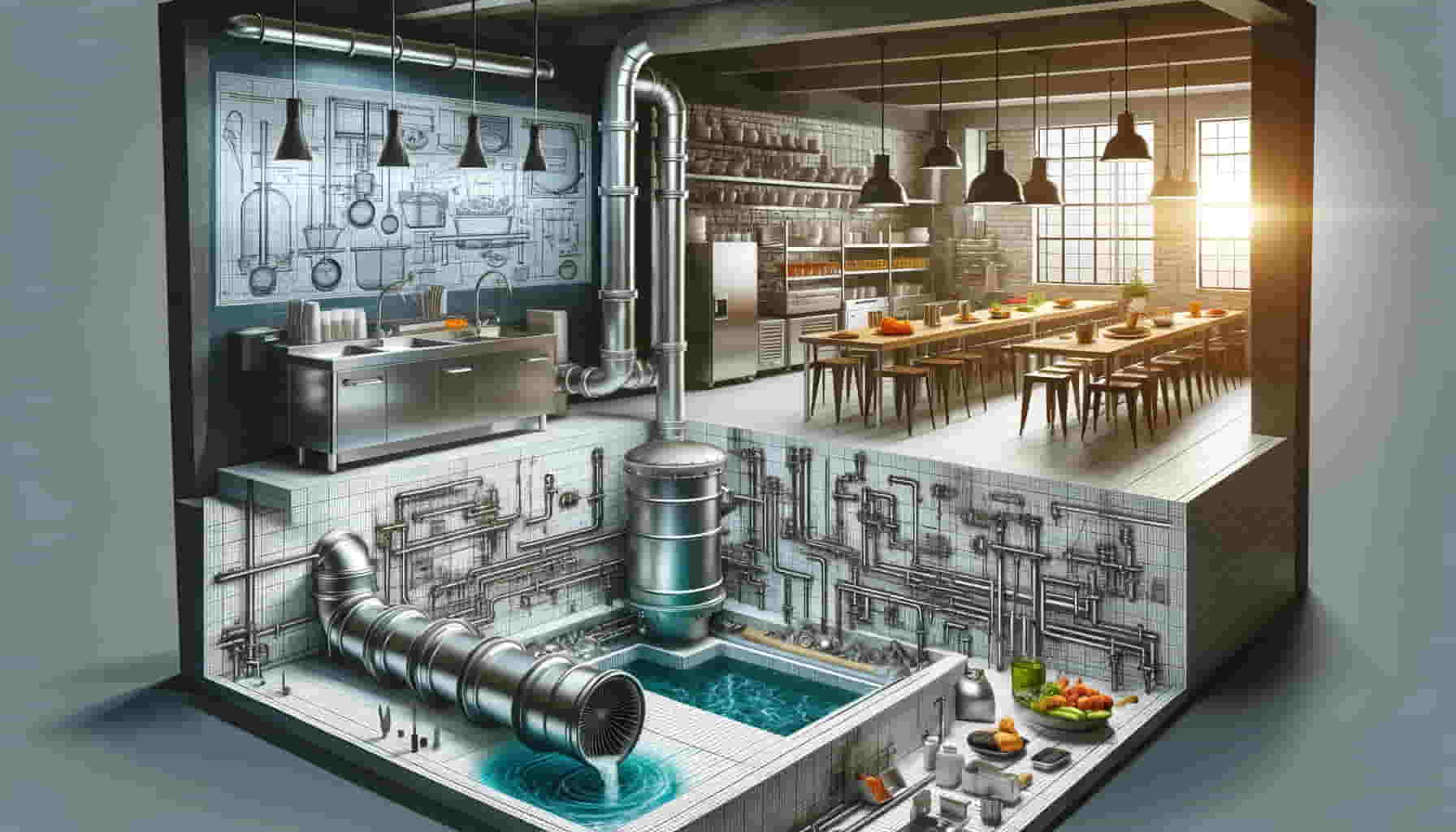Commercial Grease Traps: Understanding Their Role in Kitchen Plumbing

In the bustling world of restaurant ownership, maintaining a smoothly running kitchen is paramount to success. Among the many considerations in kitchen maintenance, ensuring the proper functioning of plumbing systems is crucial. Commercial grease traps play a vital role in this regard, yet their significance is often overlooked or misunderstood. In this comprehensive guide, we will delve into the importance of commercial grease traps in kitchen plumbing, their operation, maintenance requirements, and the consequences of neglecting them.
The Purpose of Commercial Grease Traps
Commercial grease traps, also known as grease interceptors or grease separators, are essential components of kitchen plumbing systems. Their primary function is to capture fats, oils, and grease (commonly referred to as FOG) along with solid food particles before they enter the wastewater disposal system. This prevents FOG from accumulating in sewer lines and causing blockages, backups, and environmental contamination. By intercepting grease at the source, grease traps help maintain the integrity and efficiency of municipal sewage systems while mitigating the risk of costly plumbing emergencies.
How Commercial Grease Traps Work
Commercial grease traps operate on a simple yet effective principle of gravity and buoyancy. As wastewater flows through the grease trap, it first encounters a baffle or separator that slows down the flow. This allows FOG and solid particles to separate from the water due to differences in density. FOG, being lighter than water, floats to the surface, forming a layer of scum, while solid particles settle at the bottom. The relatively cleaner water flows through the trap and exits into the sewage system. To prevent overflow, grease traps are equipped with a device called a skimming mechanism or an automatic grease removal system, which periodically removes accumulated grease from the surface.
Importance of Regular Maintenance and Cleaning
While commercial grease traps are effective in capturing FOG and solid waste, they require regular maintenance and cleaning to remain efficient. Neglecting proper maintenance can lead to a myriad of problems, including foul odors, clogged pipes, sewage backups, and compliance violations. To ensure optimal performance, grease traps should be inspected, cleaned, and serviced by trained professionals on a routine basis. Commercial grease trap cleaning involves removing accumulated grease, solids, and debris from the trap, as well as inspecting and repairing any damaged components. Regular cleaning not only prevents plumbing emergencies but also prolongs the lifespan of grease traps, saving restaurant owners from costly repairs and replacements.
Regulatory Compliance and Environmental Responsibility
In addition to the operational benefits, proper maintenance of commercial grease traps is essential for regulatory compliance and environmental responsibility. Many municipalities and regulatory agencies have strict guidelines and regulations governing the installation, operation, and maintenance of grease traps in commercial kitchens. Failure to comply with these regulations can result in fines, penalties, and even legal action. By adhering to regulatory standards and implementing best practices for grease trap maintenance, restaurant owners demonstrate their commitment to environmental stewardship and community health.
The Consequences of Neglecting Commercial Grease Traps
The consequences of neglecting commercial grease traps can be severe and far-reaching. Accumulated grease and solid waste can lead to blockages in sewer lines, causing backups and overflows that disrupt kitchen operations and pose health hazards. In addition to the immediate impact on restaurant operations, sewage backups can result in costly property damage, cleanup expenses, and reputational harm. Moreover, untreated FOG discharged into the environment can pollute waterways, harm aquatic life, and degrade ecosystems. By proactively addressing grease trap maintenance, restaurant owners can mitigate these risks and safeguard their business, the environment, and public health.
Conclusion
Commercial grease traps play a critical role in maintaining the efficiency and integrity of kitchen plumbing systems in restaurants. By intercepting fats, oils, grease, and solid waste, grease traps prevent blockages, backups, and environmental contamination. However, to ensure optimal performance, grease traps require regular maintenance and cleaning. Restaurant owners should prioritize grease trap cleaning as part of their routine maintenance schedule to avoid plumbing emergencies, regulatory violations, and environmental harm. By investing in proper maintenance, restaurant owners can protect their businesses, comply with regulations, and demonstrate environmental responsibility. Commercial grease trap cleaning is not just a necessity; it is an essential aspect of running a successful and sustainable restaurant operation. Click here to learn more.






Leave a Reply